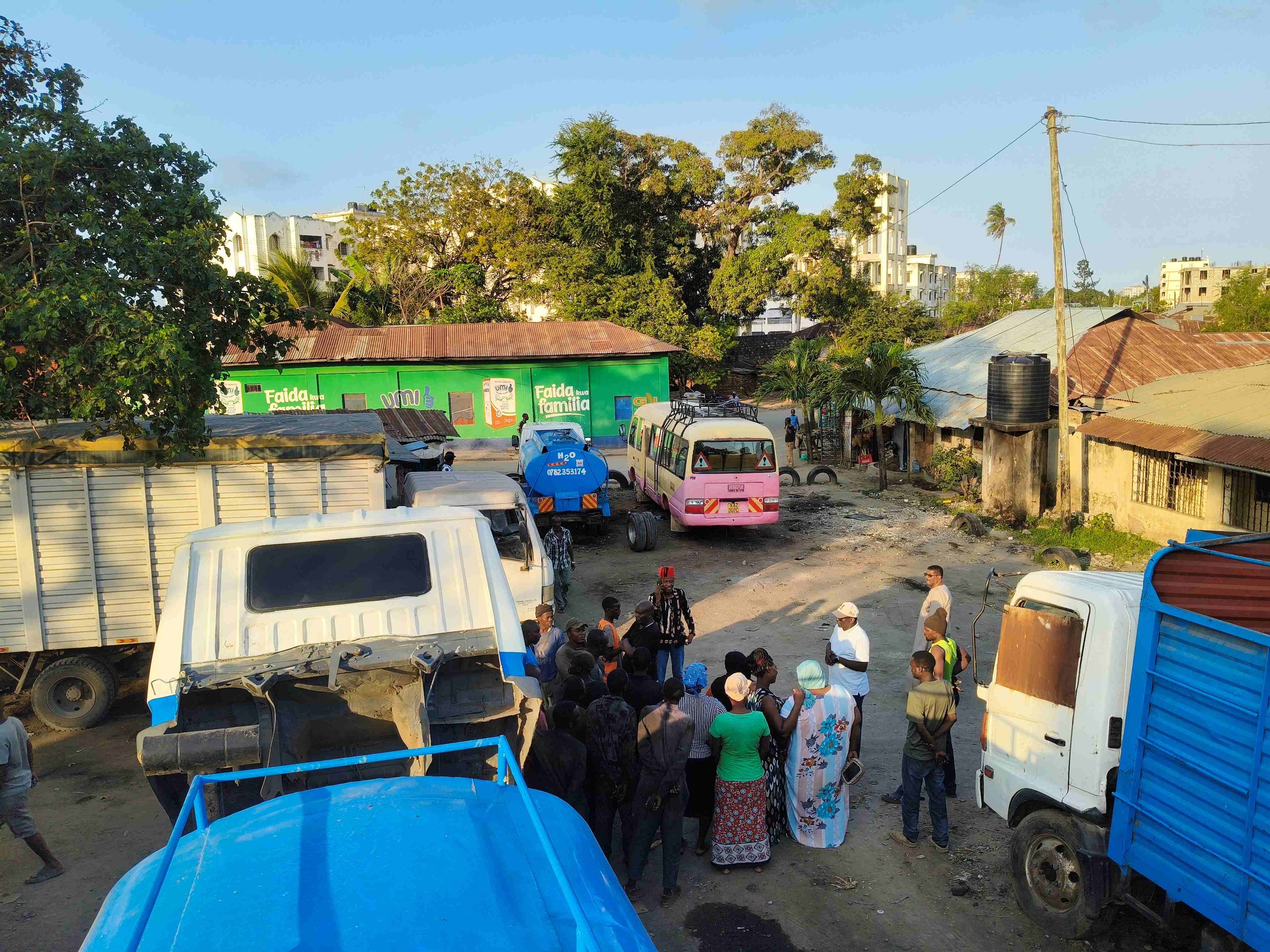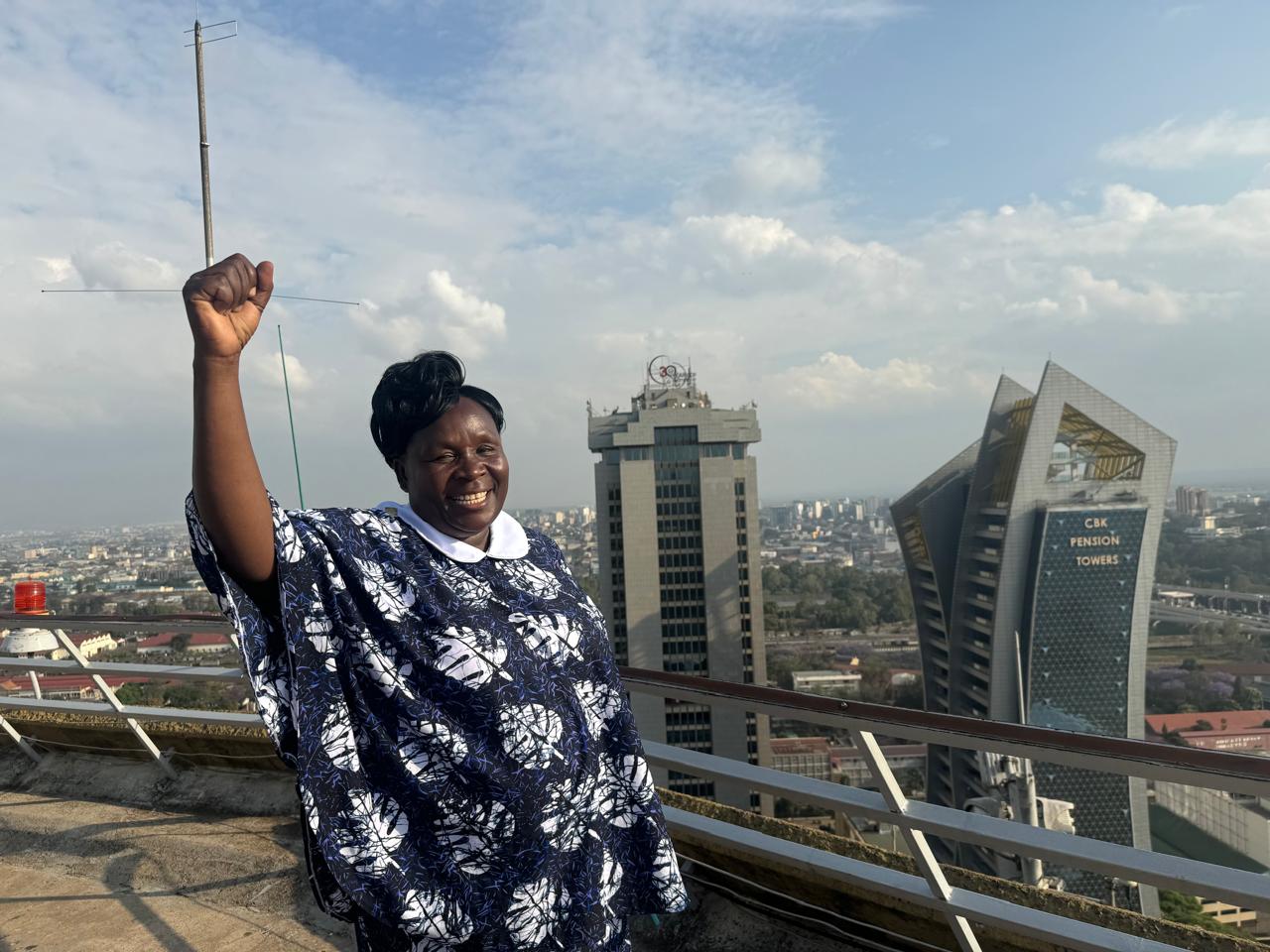

When her husband died in 2002, pregnant Rhoda Nafula faced not only grief and poverty, but violent eviction by in-laws who seized everything—turning her mourning into a years-long battle for dignity, justice and home.
Nafula’s husband had been the sole provider for their young family. His death left her with two daughters and a three-month twin pregnancy.
Over two decades on, the ensuing rejection, humiliation and dispossession turned her into a bold advocate for widows whose story and impact is now documented in a world-acclaimed documentary film titled Widow Champion.
It is produced by Kelin under its Cultural Structures Project (CSP).
She has not only remained in the community, but has become a leader, a community health promoter and the family leader whose say has sway over everything.
Almost immediately after his burial, her in-laws in Nyando, Ahero, demanded that she leave and “return to her people in Western”.
“They came and took everything,” she told the Star during an interview.
“Utensils, chairs, the television, even bedding. They said everything belonged to their son.”
Nafula says her husband of five years had loved her deeply and shielded her from financial burdens.
“He was the only breadwinner,” she said. “He believed I should just take care of the children. When he died, I had no money, nowhere to go, nothing to stand on.”
Her defiance of cultural expectations worsened her situation. When she refused to be inherited, as required by certain Luo customs, her in-laws’ hostility intensified.
“I did not accept that another man would sleep with me, especially without any health checks,” she said.
“HIV was very high at that time.”
Her resistance was met with violence. The house her church had built for her was demolished.
A second house, built later by well-wishers, met the same fate.
“They sold the land my husband left for me,” she said. “They chased me with pangas and disowned me from the family.”
Being the widow of the family’s first-born son, she says, made her defiance seem like rebellion.
“It meant everyone was watching me. My refusal to follow the rituals angered many.”
Homeless and with four children, Nafula turned to faith and solidarity. She joined the Nyando Orphans and Widows’ Association, a network of 30 widow groups bringing together about 1,000 members across the region.
The group offered a safe space for women facing loss, rejection and property disputes.
It was during one Nowa meeting in 2010 that Nafula’s story began to change. Representatives from Kelin—a health and human rights organization focused on HIV, law and justice—attended the session and invited widows facing legal challenges to come forward.
“The staff from Kelin asked who had problems and needed legal help,” she recalled. “I raised my hand. I was the only one who spoke up.”
Kelin connected her with the Luo council of elders, who stepped in to mediate between her and her in-laws.
The elders, she says, explained that wife inheritance was originally intended to safeguard widows and preserve families, not as a means to seize property or exert control.
“They said the custom had been abused,” Nafula said. “It was meant to protect the widow, not destroy her.”
Through mediation and legal support, Nafula’s land was restored. That resolution marked the turning point in her life—the beginning of her journey from victim to advocate.
Today, Nafula works with widows across Nyando, helping them reclaim property, access legal assistance and rebuild their lives.
“Most widows go through what I went through—rejection, harassment and dispossession,” she said.
“The government is not doing enough to protect them. That is why I decided to fight for widows and defend their rights.”
She estimates that through her work, more than 500 widows in Nyando have been resettled back on their land. Her efforts, she says, are personal and self-driven.
“I don’t have an organisation behind me. I just do it myself. It is a fire inside me. What I went through should never happen to another woman.”
She has not only remained in the Ahero community, but become a leader, a community health promoter and the family leader whose say has sway over everything.
The Kelin initiative uses community-based approaches—including traditional leadership and dialogue—to promote access to justice for women in rural areas.
The film, directed by Kenyan filmmaker Zippy Kimundu, premiered at the Nairobi Film Festival last week.
It chronicles Nafula’s transformation from a dispossessed widow to a vocal defender of land rights for women in patriarchal communities of Western Kenya.













